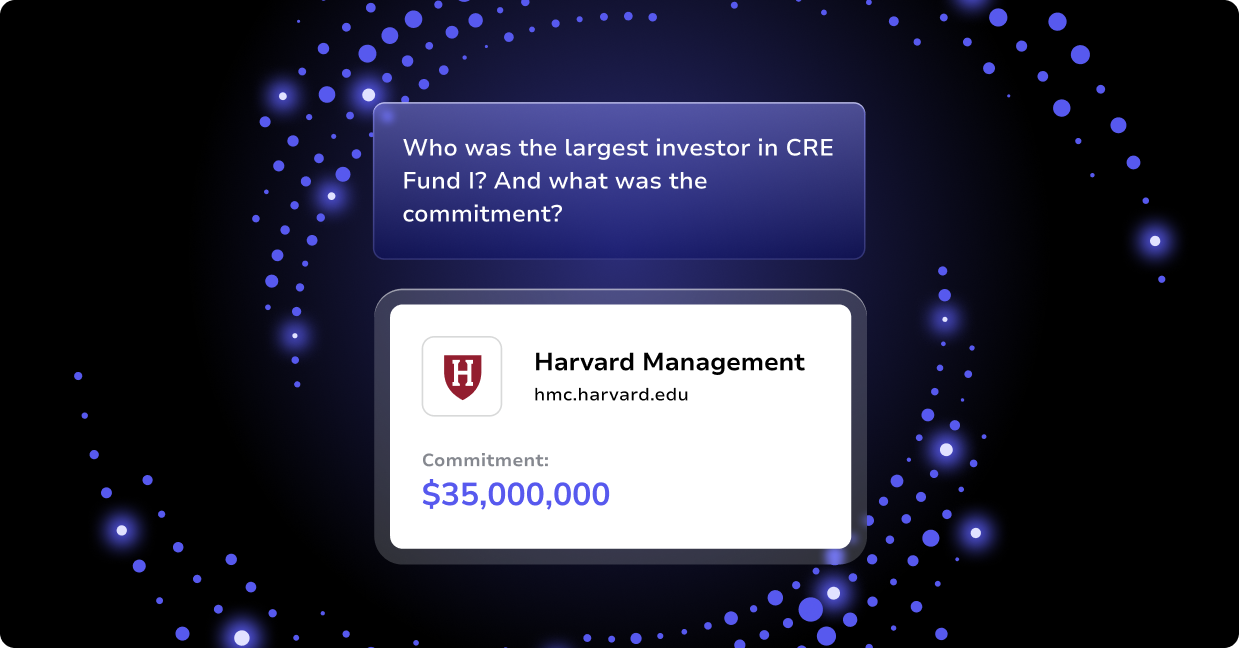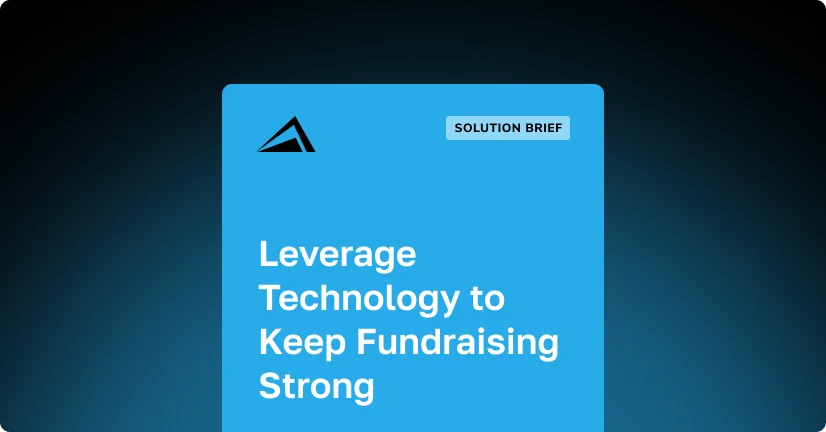With Private Equity Data Delivering More Insight Than Ever Before, It’s No Surprise More Firms Are Using Technology To Stay Competitive.
Making deals and raising funds may seem to be all about the numbers. However, any experienced fund manager will tell you that success depends on how effectively private equity firms can leverage relationships with a fund management system.
These days, managing relationships requires tracking vast amounts of private equity data. Deals move fast, and the competition is fierce.
You can’t afford to fall behind because you don’t have all the information you need. In an industry where trust and confidence are key, you can’t look like you don’t know what you’re doing.
Today’s top-tier private equity firms have a holistic view of their network and the influence they yield at their fingertips. Firms do this by using a CRM system built specifically for the unique and evolving needs of private equity.
Chances are you’re currently recording contacts, conversations, and notes in multiple disparate ways:
- Spreadsheets
- Emails
- Calendar invites
- Handwritten meeting details
- Sticky notes
Obviously, this is no way to manage your crucial relationships and funds effectively.
Private equity data management systems like CRMs, connect data from reports, conversations, emails, and meeting notes seamlessly. A CRM records the history of each contact—from how they are connected with the firm to their current industry position to previous roles.
When you’re ready to improve your firm’s efficiency by leveraging your valuable private equity data, here are the considerations to make for your CRM system.
Connect Data to Your Fund Management System
No doubt about it: Companies that know how to harness their private equity data and the insights it provides are the ones that will succeed in today’s digital world.
Private equity firms have been collecting data for years. However, many struggle to use it due to a lack of integration. Add in the rapid advancement of technology and it’s easy to understand why fully leveraging private equity data is the number one challenge reported by industry executives.
Accurate private equity data is crucial during every stage of a deal. Yet accuracy isn’t always a guarantee. Private equity firms have access to more data than ever before. However, many use inefficient reporting and tracking systems that slow down the process and degrade the quality of the data.
With no consolidated repository for important information, teams face many challenges and risks, including:
- Hours wasted hunting down data
- Time spent creating workarounds to make sense of disconnected facts and figures
- An increased chance of errors and greater risk to the firm
- Making investment decisions based on inaccurate information
- Failing to keep up with regulations
- Wasting budget on solutions that don’t work
Centralizing all of your deal data in one place frees up valuable resources and increases the accuracy of your data to improve decision-making.
Your fund analysts, for example, can spend less time on administrative tasks like sorting through emails, calendars, and Excel (read 10 Reasons Excel Falls Short for Fund Managers) and more time deriving value and meaning from their private equity data to inform your firm’s strategy.
More importantly, having confidence in the accuracy of the data also leads to confidence in the decisions made based on it.
Choose the Right Fund Management System
If you remember one piece of advice from this article, make it this: You must develop your data analytics strategy to solve the problems you need solved, not around your current systems.
Your private equity data management system should be tailored to the industry’s unique demands. When evaluating solutions, ask the following about the platform:
- How well does the provider understand our firm’s particular fundraising requirements?
- What kinds of workflows does the system offer for deal tracking?
- Do the tools and the team demonstrate an understanding of how investors think?
The system you select should be backed by people who are committed to serving as your business partner, not just your software provider. Adopting any new software is a change, and the switch to a new CRM requires change management, particularly during the implementation phase. You will need a support team that is committed to serving your team as you transition and understands the private equity business model. (Find tips on managing the implementation process here.)
Finally, decide whether you want a standard or customized solution. While a standard solution may promise the convenience of an integrated suite of technologies, you’re often stuck with lackluster capabilities that don’t serve the specific and unique needs of your firm.
Customized solutions, on the other hand, offer more flexibility to meet your evolving business requirements. This is especially important if you want to continue using current applications, meet your investors’ unique needs, or even help your team adopt a new approach to their work.
This is why Altvia partners closely with Salesforce to develop the most successful CRM platform for private equity firms and one that is continually evolving and improving.
How to Find the Right Private Equity Data Tool
Are you in the process of determining if your firm needs a technology solution for private equity data management? If so, our Buyers Guide to Private Equity Technology can help you find the partner you need to ensure your firm is on the right track for growth.
Read the guide to learn what questions you should be asking before you decide on a private equity data management tool.




